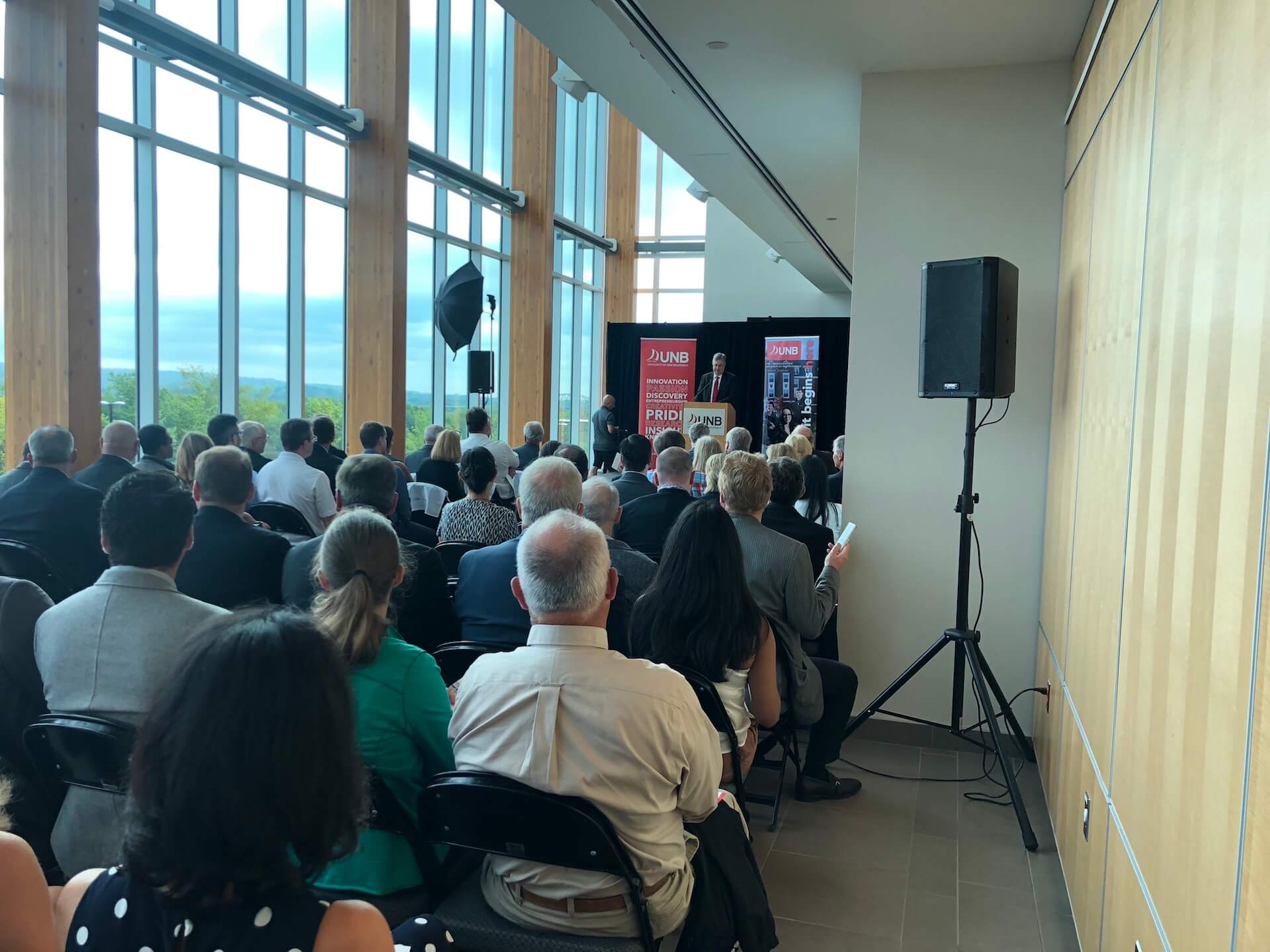Construction group to fund $2 million UNB research centre
Construction group to fund $2 million UNB research centre

A Saint John-based construction group announced a $2 million investment in an “offsite” construction research centre at UNB Fredericton on Thursday.
The centre is funded by OSCO Construction Group and will be integrated within the civil engineering department. OSCO, which is a collection of steel, concrete and construction companies, is making the investment with a goal of shifting construction practices.
Off-site construction involves the planning, designing and fabrication of building components at the factory stage, allowing for easier project assembly on-site.
The research centre will be part of the existing engineering complex until the addition of a new building. The $2 million funding will be mainly spent towards research staff, equipment purchase and space enhancement.
Hans Klohn, president of OSCO Construction Group, said during an announcement that the two major factors of the partnership are the possibility of “creating value-added products” and forming ties with UNB.
“Today’s off-site components represent only about 15 to 30 per cent of the total job value; the target is to increase the percentage to as high as 70 per cent,” Klohn said.
UNB president Eddy Campbell said the collaboration will trigger a boost in trade and income that can help to combat the challenges of New Brunswick’s economic activity.
“You may have heard New Brunswick described as a failing province, indeed not failed but failing and this is part of the motivation that we have for the work that we are doing,” he said.
Campbell reminded announcement event attendees that UNB conducts around 75 per cent of all publicly-funded research in the province. He is expecting that such partnerships will create a bigger export market for local manufacturing companies.
The UNB Department of Civil Engineering’s management, materials, structures and transportation research groups will be involved in the new centre.
Dean of Engineering Chris Diduch said the faculty’s vision includes doubling the research output as well as increasing graduate enrolment.
“By creating research clusters built upon multidisciplinary teams and diverse expertise we will be able to address complex technical and societal problems,” said Diduch.
Even though the centre is starting as disciplinary-specific with a focus on civil engineering, the need for innovative sustainable designs will create opportunities for students from various engineering backgrounds.
The program is currently searching for an OSCO chair in off-site construction who will lead the centre and work to create business partnerships with the university, and a post-doctoral candidate to identify current industry needs and to seek global expertise.
The centre is expected to host an international design symposium within the next 18 months to present initial research, Diduch said.
Keep in touch with our news & offers
Subscribe to Our Newsletter
Thank you for subscribing to the newsletter.
Oops. Something went wrong. Please try again later.






